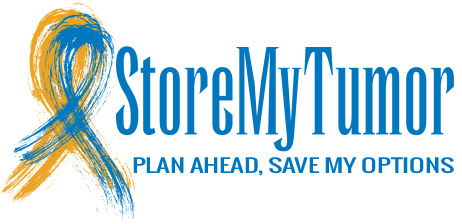Understanding how cancer behaves at the genomic and molecular level is helping doctors treat cancer “smarter”. In honor of National DNA Day, here are 6 things you should know about your DNA and cancer.
1. Cancer develops when DNA becomes damaged or changed.
The National Institutes of Health defines cancer as a genetic disease caused by changes to genes that control the way our cells function, especially how they grow and divide. While some changes are acquired from behaviors such as smoking, being overweight and exposure to sunlight, others are simply inherited, and the cause is unknown.

2. Your DNA can provide valuable insight into your cancer.
We now know that just as no two people are exactly alike, no two cancers are alike. This is why patients with the same types of cancer will not necessarily respond in the same way to the same treatments. To match patients with the best treatment for their specific cancer, doctors are looking for information from each person’s DNA.
3. DNA sequencing can help identify which patients are likely to benefit from certain treatments.
DNA sequencing explores the fundamental abnormalities and changes within cancer cells. By tailoring medical treatments to a patient’s distinct DNA abnormalities or genetic characteristics, doctors can identify the best course of treatment and may even help patients avoid or reduce adverse drug reactions along with the toxic effects of therapies that may not be necessary.
For instance, EGFR is a mutation present in approximately 15% of people with non-small cell lung cancer in the United States. Targeted therapies are now available to attack this specific mutation. Targeted therapies are medications that target cancer cells specifically and often have fewer side effects than traditional chemotherapy, which targets all rapidly growing cells.

4. Not all mutations can be matched with known treatment options.
DNA sequencing and advanced genomic testing is an evolving science. While the analyses can help doctors consider more precise therapies in many cases, it’s important to note that not all mutations can be matched with known treatment options
5. Tumor sample is needed to run any type of sequencing or genomic testing.

Doctors tend to recommend these tests to patients whose cancer is rare, aggressive or advanced, or to patients who did not respond to an earlier treatment plan.
Your oncologist will need a sample from a biopsy of your tumor, or a blood sample if you have a hematologic (blood-based) cancer. Your oncologist may have already saved a sample that is ready and available to send for profiling. If not, you will need to go to your oncologist for another biopsy.
6. Eliminate the need for additional biopsies by storing your tumor.
When live cancer cells and tissue are stored properly, additional testing like DNA sequencing and treatment options may become available to you without for additional biopsies.
StoreMyTumor, the leader in tumor collection, processing and storage services, connects you to cutting-edge technologies that are beyond standard treatments.
To learn more about personalizing your cancer treatment, schedule your FREE consultation today with our Patient Advisor!
